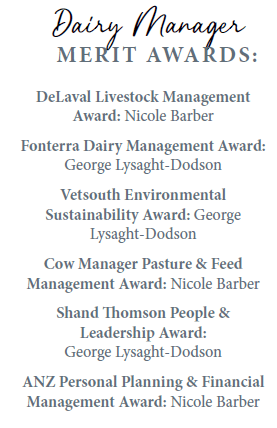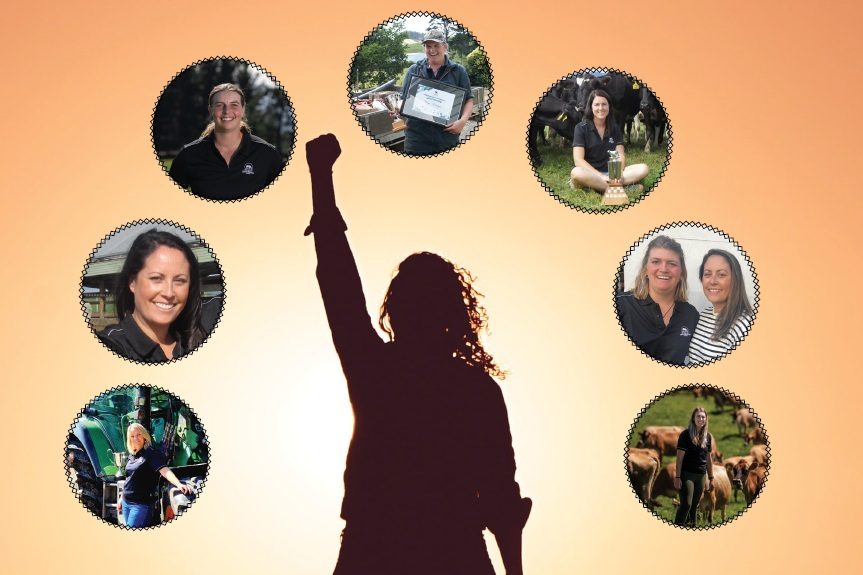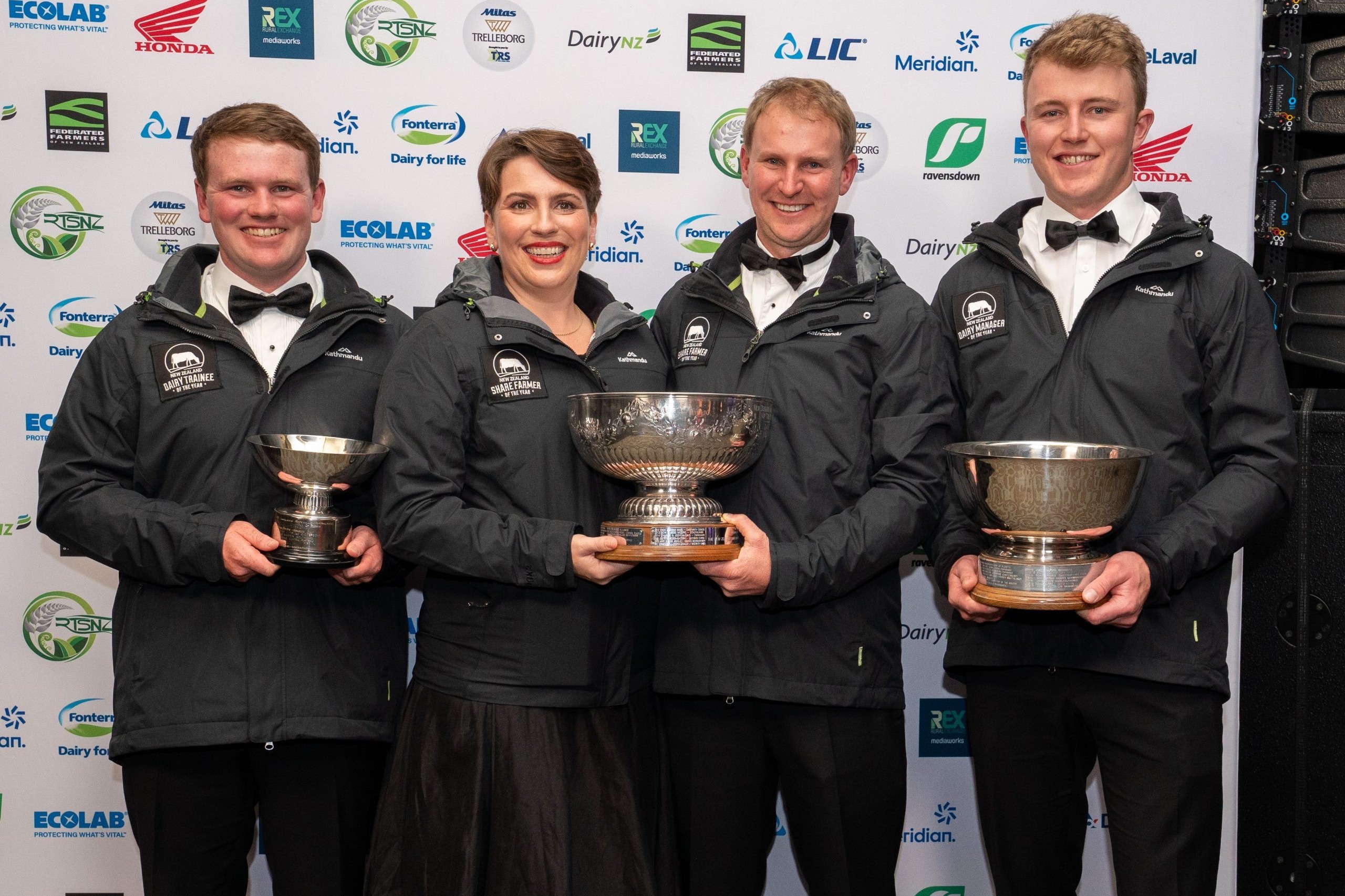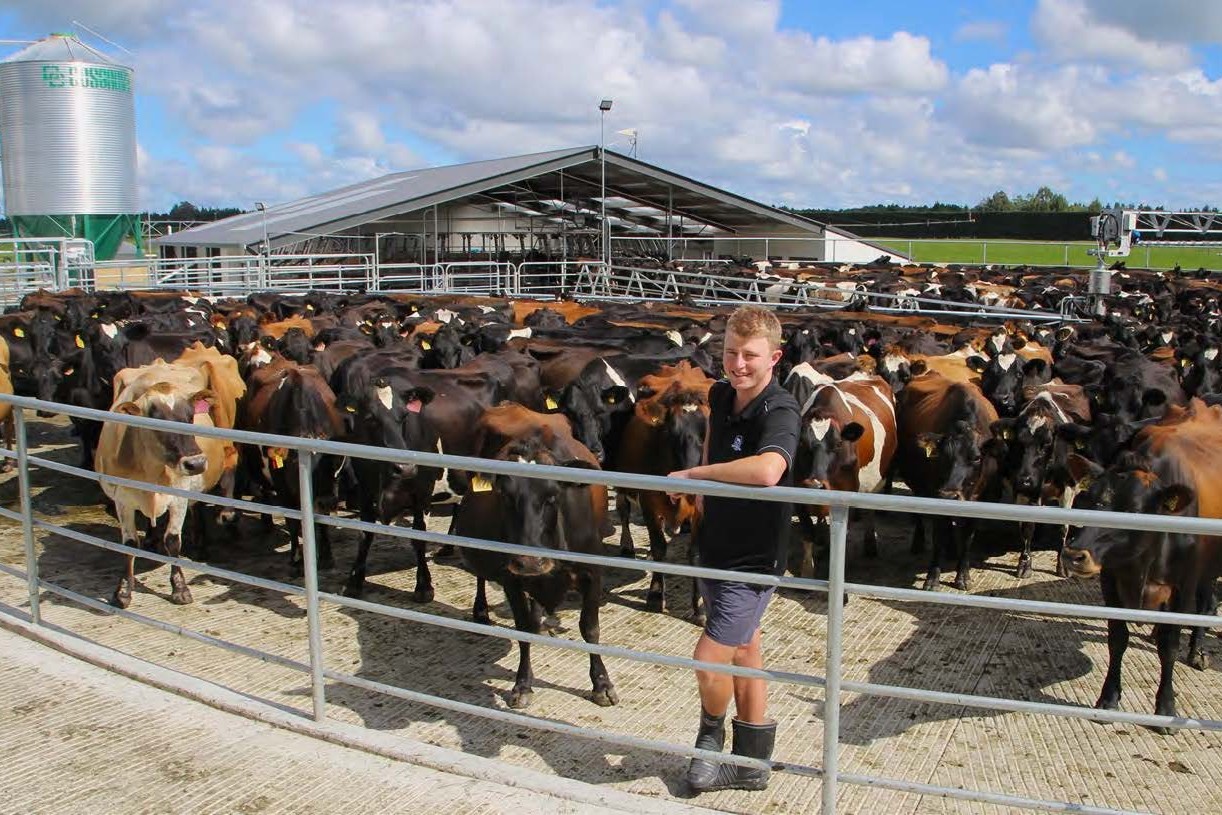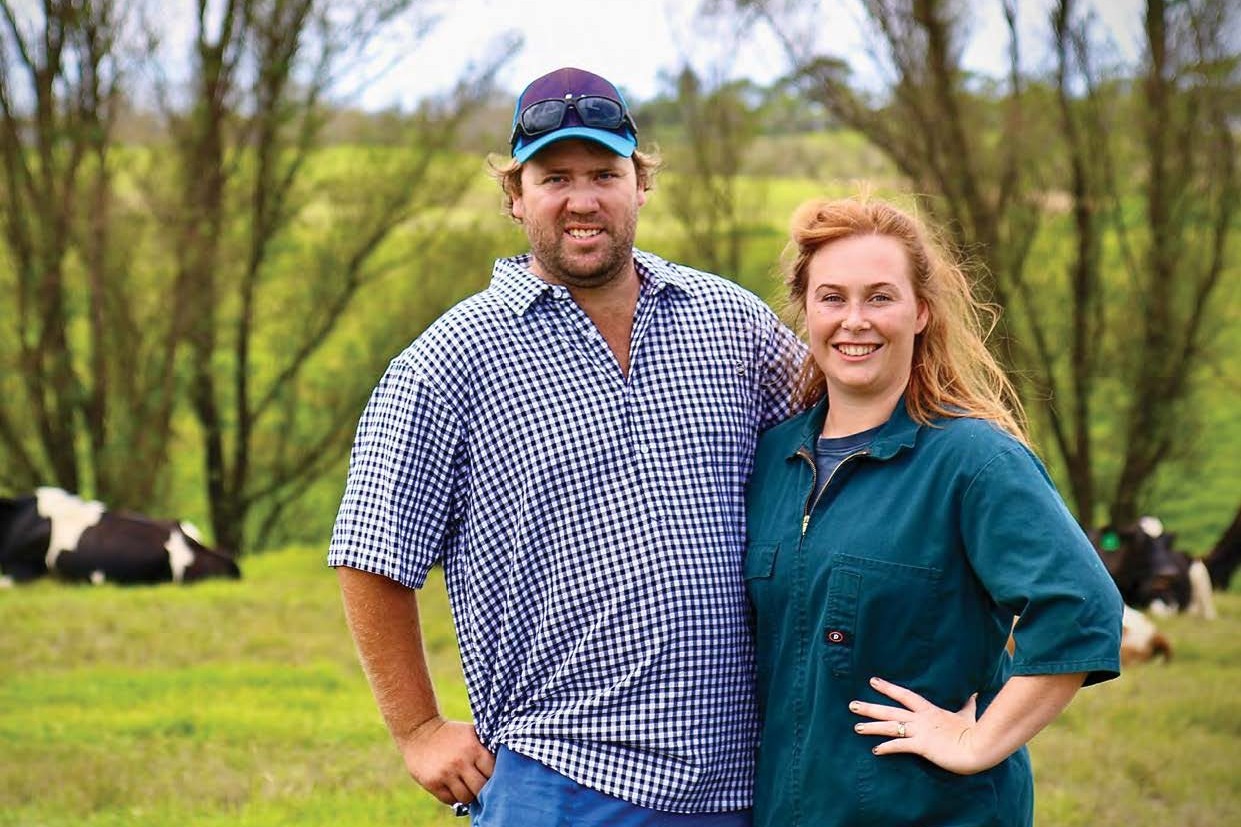Tapanui barn is a reminder of home
Nicole Barber - Southland/Otago Dairy Manager of the Year. By Karen Trebilcock.
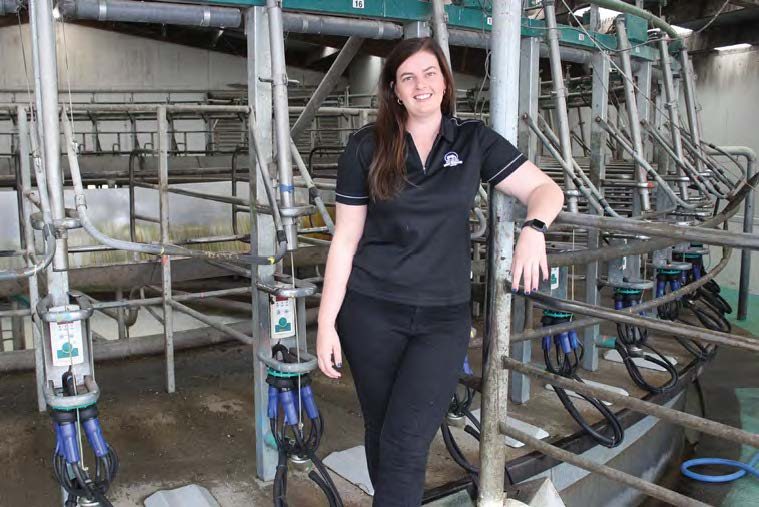
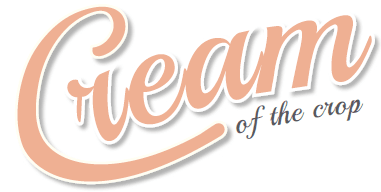
Nicole Barber was surprised to win the Southland/Otago Dairy Manager’s competition in Invercargill in mid-March but wasn’t surprised it was a woman who took the honours.
“I didn’t even think I would win a merit award and then when I won the first one I thought, well, maybe.”
Of the seven merit awards on offer the 29-year-old won three – for livestock management, pasture and feed management as well as personal planning and financial management.
She was puzzled why the industry still employed fewer women than men and was optimistic it would soon change.
“Hopefully farm owners will start seeing the light.”
Although she prefers focusing on animal health and feeding than driving a tractor, she said she can do everything required onfarm.
“Technology certainly helps. We’ve got cup removers, an automatic teat sprayer and automatic drafting in the dairy which makes life easier.”
As does the farm’s five days on and two days off roster.
“And we’ve got the 800 cows in two herds and we have a policy that no one milks both herds so that works well too.”
Nicole grew up on a 60-cow organic farm in Cheshire, England, milking the family’s cows for pocket money. When she was in high school her parents opted instead to graze young stock and horses.
“They probably switched at the right time because now dairy herds have to be tested every six months for TB with the disease spread by badgers,” she said.
Nicole ran a catering business for several years and then decided to spread her wings, first at Camp America in Virginia teaching kids to ride horses before coming to New Zealand in 2017.
A dairying assistant job advertised on a backpacker notice board soon saw her milking cows in Otago’s Clydevale.
Several farms later she is now managing 280 hectares near Tapanui for Stefan and Holly Roulston and is a NZ resident. She went back to the United Kingdom for the first time last year for her brother’s wedding and was glad when it was time to leave again.
“There’s just too many people, too much traffic over there.”

On the farm near Tapanui, the windows of the farmhouse look towards the Blue Mountains with only paddocks, cows and dairy sheds in between.
But Gore, where she meets with her many friends, is only half an hour’s drive away.
Her plan is to buy a house soon in the town to build equity as well as investing in cows with the hope of sharemilking.
“I think going straight into sharemilking from managing, in some form, is better than contract milking. I’ve weighed up the pros and cons. In 10 years I want to have my own herd of 500 cows.”
She plans to continue working on the farm for at least another season but is still to decide whether she will stay on longer or go even bigger elsewhere. She enjoys the variety of jobs on the farm and says few days are the same.
“I know what is going to happen each day because I’m the manager, I decide, but there is always something different, something challenging.
“And I like to be outside and working with animals, my dog with me.”
She has three staff under her, one a woman, and all older than her.
“They’re really good to me. I suppose when you know what you’re talking about, people respect you.
“I don’t like confrontation so if something goes wrong I’d rather talk about it than yell. I like to make it a friendly working environment for everybody.”
She’s done Primary ITO level three pasture and level four dairying and this winter hopes to learn to AI cows through LIC so she can inseminate some of the herd.
“I want to be able to do DIY AI. We’ve changed over from split calving to calving only in spring this year so for the past couple of years we’ve raised more young stock, 25% instead of 20% to be ready for the change.
“We’ll now be able to cull some of those older cows which have fertility problems that have been carry-over cows in the past.
“We used to mate 100 cows for autumn calving and then keep milking anything empty as well during the winter and those cows that should have gone are still in the herd.
“It’s now time for them to go.”
Improving last year’s 63% six week in-calf rate is in her sights, as well as the 19% empty rate.
“Being able to AI myself will mean if a top cow comes on heat in the afternoon we can mate her then and not wait until the technician arrives in the morning.”
They still use bulls and have raised Wagyu calves on contract as well as Hereford calves.
“Most of our bull calves, whatever the breed, are sold. We don’t have to bobby them.”
The Tapanui farm is the first one she has worked on with a barn.
“It reminded me a bit of home. We used to have our cows inside from November through to April in the UK.”
The barn is used for wintering 400 cows but this season’s long dry summer and autumn has seen cows inside on silage.
“For the end of the season we’re alternating the herds, with one in during the day and the other at night.
“During the winter, one herd will be there permanently with the rest of the cows on swedes and the young stock on kale so for the staff it’s either working in the wintering barn or shifting fences on crop.”
The only thing missing in her life she says now is a horse.
“I’m looking but I haven’t found the right one to buy yet. And my boss’ daughter wants to learn to ride so I’ve got that incentive.
“With my own horse I will finally feel settled.”
George Lysaght-Dodson was second in the Dairy Manager category and Oteramika farm manager Sameera Manage placed third.
